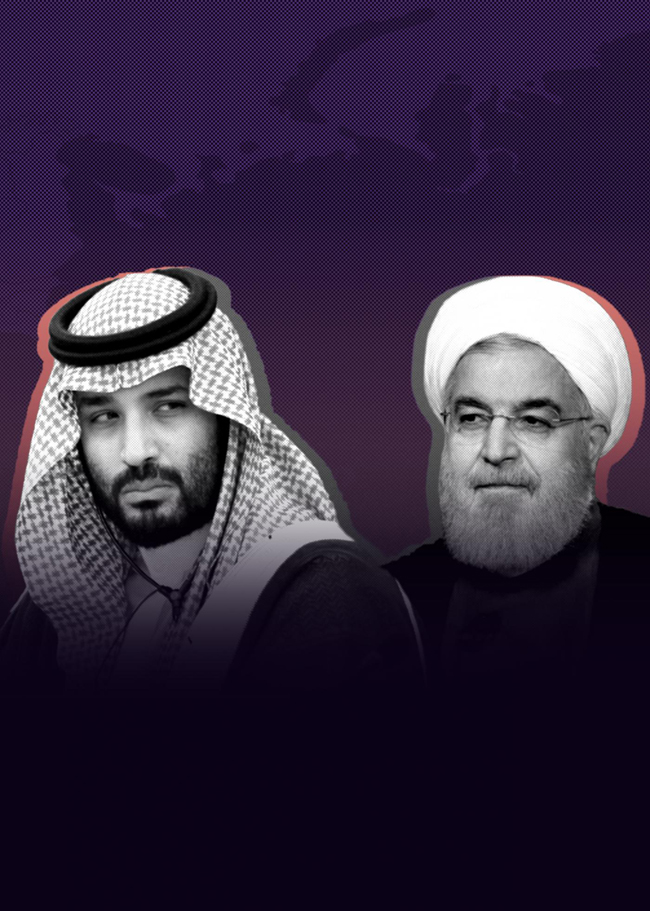Karachi … News Time
News of a series of talks between Saudi Arabia and Iran has sparked a wave of satisfaction and happiness in the Muslim world, and it is hoped that the deepening wounds inflicted on Muslim society by the unhappy relations between the two countries will end. The tug-of-war between these two OIC member states has not only deepened the process of division in the Muslim world, but has also filled it with many new wounds and bitter memories. In the race to dominate Muslim populations and countries and to influence policy-making, the two countries have divided this population. So now that both countries have come up with the idea of burying this past, happiness and joy are natural. The governments of Saudi Arabia and Iran met in Baghdad with the backing of Iraqi Prime Minister Mustafa al-Kadhimi. Saudi Arabia initially denied the talks, while Iran remained silent. The Iraqi government confirmed the meeting, after which no further confirmation was needed. Later, in a TV interview, Saudi Crown Prince Mohammed bin Salman expressed his desire for good relations with Iran, and in response, Iran expressed similar sentiments. The two sides’ desire for a good relationship without accusations of instability and ridicule of supremacy is being seen as a sign that the frozen ice of the relationship is melting. Experiences and circumstances seem to have played a key role in persuading Iran and Saudi Arabia to end the long and protracted conflict.
Relations between Iran and Saudi Arabia began to deteriorate after the Iranian revolution. The Iranian revolution took on a popular color and was based on the overthrow of the ancient Iranian monarchy. Saudi Arabia was also a monarchy and it was natural to be shocked by a popular revolution in its neighborhood. This fear was further heightened when Iran announced that it would export the revolution. Since then, blocking this kind of revolution has become the goal of many Arab countries. Thus began a conflict between the Arabs and the Persians, which was fought openly in the form of the Iran-Iraq war and continued in the form of proxies in many Arab countries. Soon this war spread from the Gulf to other Muslim countries and Pakistan became the arena of this pointless tug of war. The four hundred teeth of sectarianism began to move. Several armed extremist groups were formed. Controversial literature began to be distributed and all debts and accounts of history began to be repaid on Pakistani soil. It seems that the biggest problem in the world is the conflict between Iran and Saudi Arabia. Pakistan was wounded in this battle. Hundreds of people including intellectuals, poets, writers, scholars, and teachers fell victim to this violence. Pakistan tried to keep this war beyond its borders but could not succeed but in the turbulent times the people of Pakistan avoided making this proxy war public as much as possible and thus the country was in for a major civil war. Did not hunt violent, hate-mongering business have remained a hallmark of the business community. Demonstrating mature ideology, the masses have kept their footing out of the fray.
The conflict, which began after the Iranian revolution, escalated when Saudi Arabia executed a Shiite cleric, Sheikh Baqir al-Nimr. In response, anti-Saudi protests erupted in Iran, with protesters attacking the Saudi embassy in Tehran, after which Saudi Arabia severed diplomatic ties with Iran. The wars in Yemen and Syria have further strained relations between the two countries. Dar knowingly adopted a counter-strategy. Relations between Iran and Saudi Arabia are also showing signs of abrupt improvement.
The defeat of Donald Trump in the United States changed the whole scenario. Trump wanted to create a sense of common threat and common enemy in Israel and the Arab world based on anti-Iranian sentiments. This conflict and division was to achieve many goals, including internal political needs. Trump’s son-in-law Jared Kishner’s personal friendship with Muhammad bin Salman had a lot of future prospects in mind, but Trump’s defeat and Joe Biden’s arrival shattered that dream and He broke the fabric. Joe Biden has announced that he will withdraw from the war in Yemen and renegotiate with Iran over the issue of nuclear energy and keep alive the role of the Saudi Crown Prince in the Jamal Khashkji case, which made Saudi Arabia realize that it also It is inevitable that a regional solution will be found at the local level and that the United States will no longer come to fight Saudi Arabia or any other country at the local level. In this changing situation, Saudi Arabia decided to revive its deteriorating relations with Pakistan as well as reduce tensions with Iran. In any case, this bud of reconciliation should be a vigorous tree because the deep wounds inflicted on Muslim societies by this incompetence should be healed to some extent and the journey of stability and development in the region should continue.




